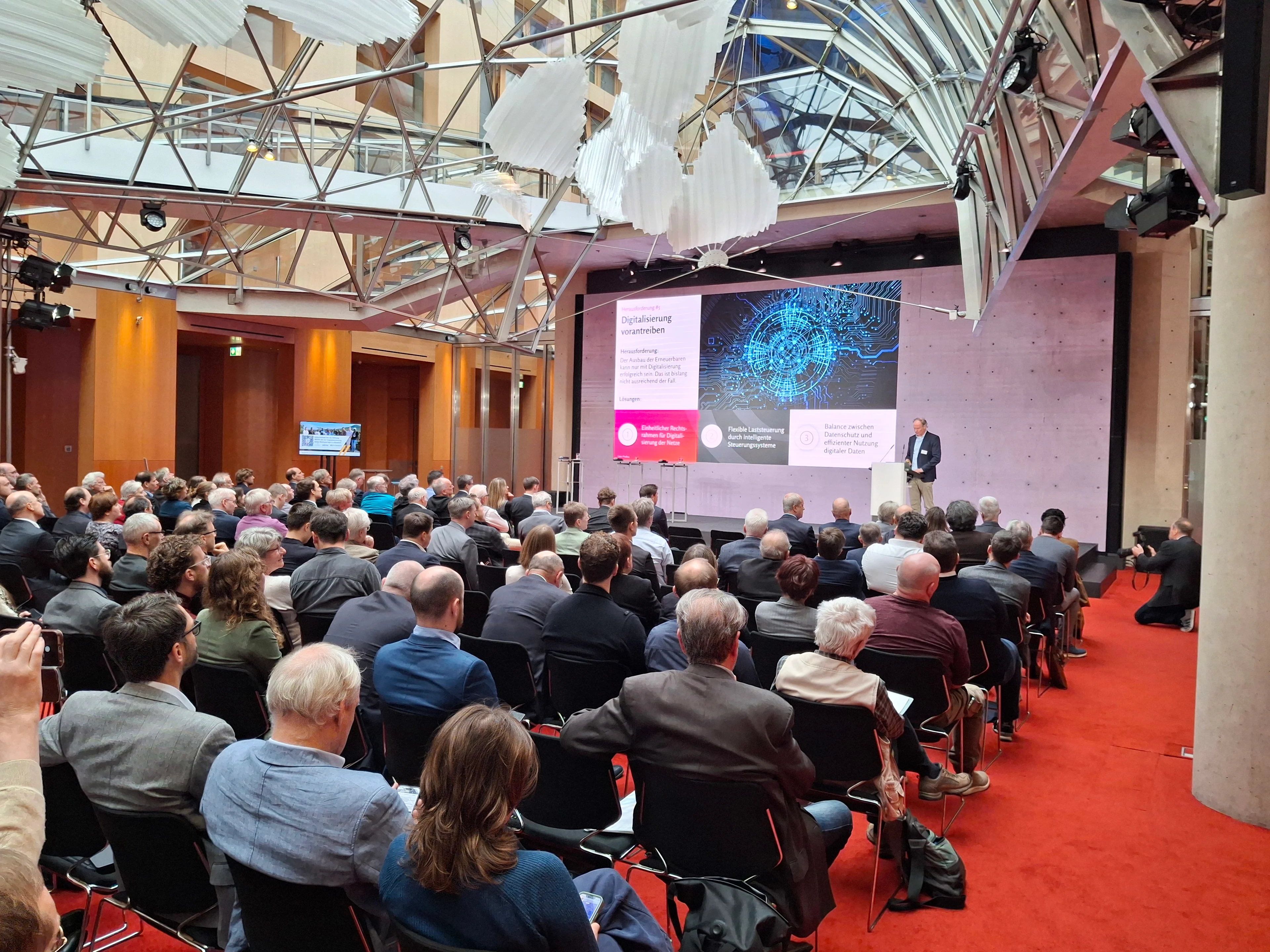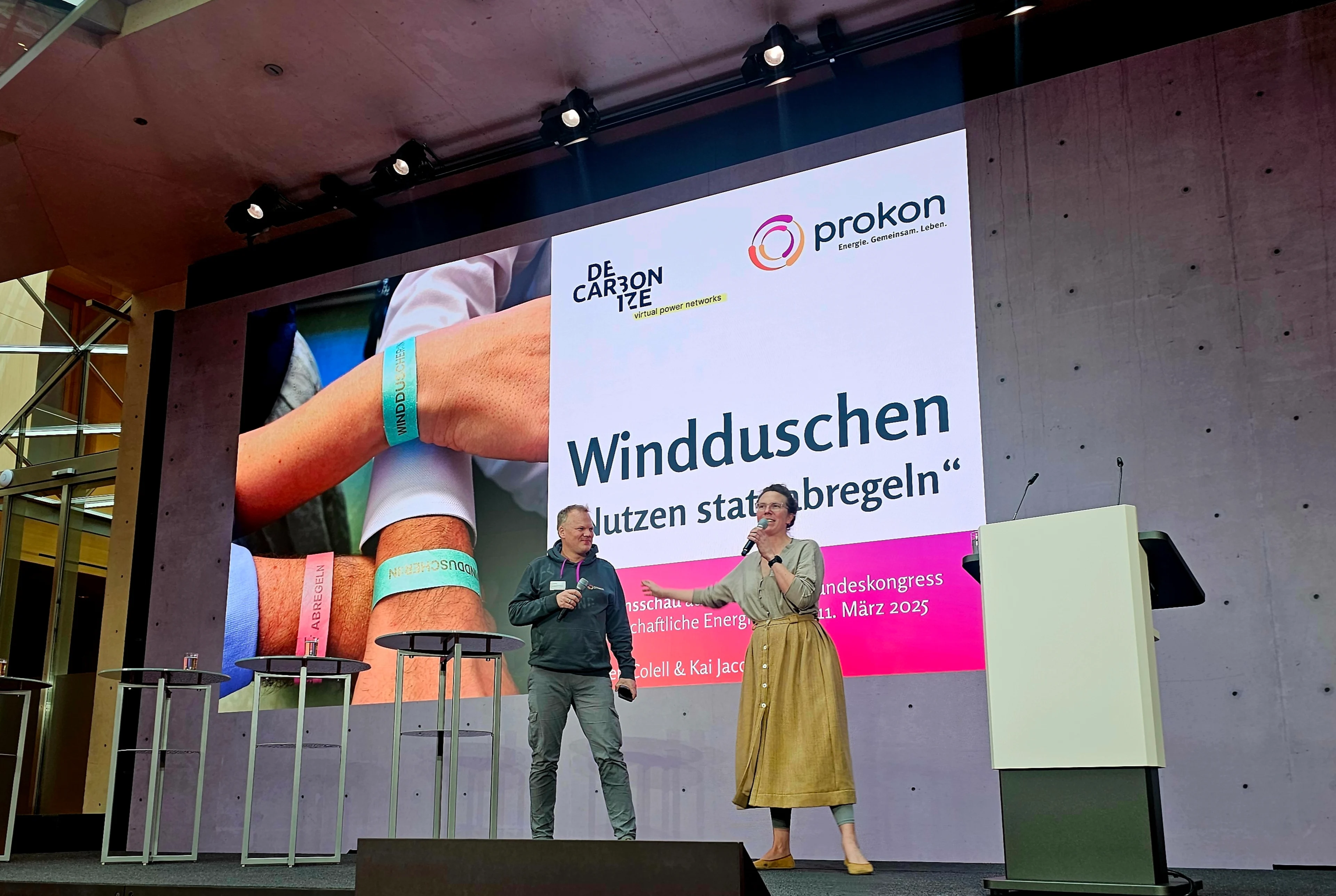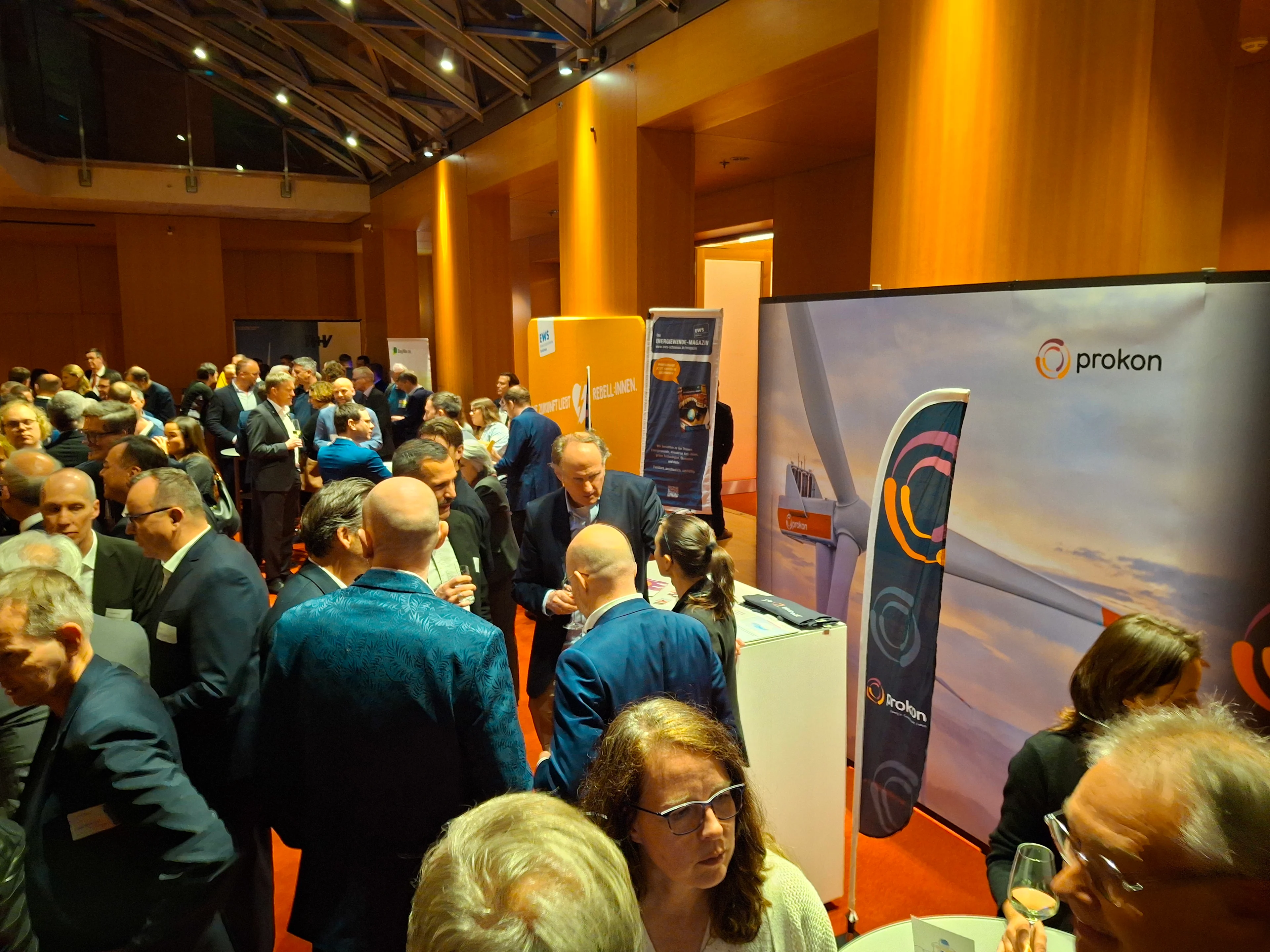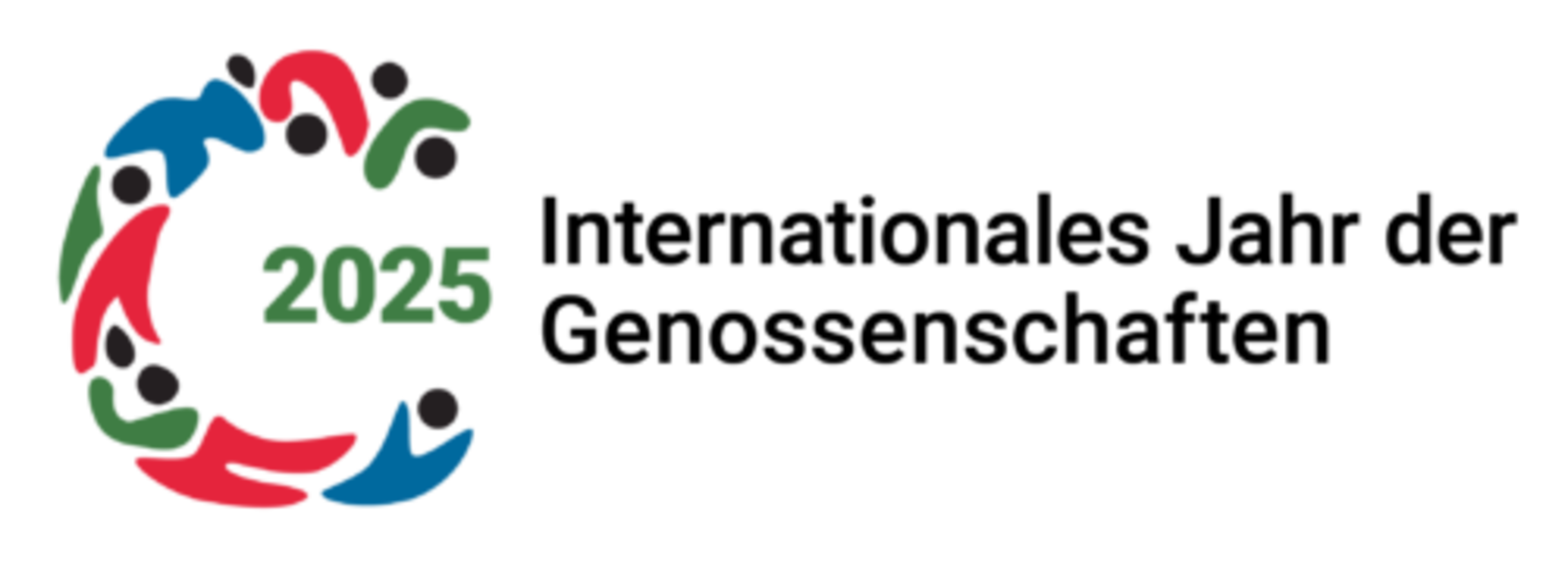Accelerating the energy transition: Where politics and economy need to start
Prokon was represented with a significant contribution: Henning von Stechow, CEO of Prokon eG, presented key energy policy challenges and necessary measures for the new legislative period in a keynote speech.
Grid expansion & storage solutions - Renewable energies are growing faster than the grid infrastructure. Grid expansion and better storage solutions must be prioritised.
Planning security & reducing bureaucracy - Approval processes take too long, investments need stable framework conditions.
Digital innovations - Smart grids and data-based processes increase efficiency and transparency.
Green hydrogen & heat transition - Clear investment and funding conditions are needed to promote climate-neutral heat and hydrogen projects.
Security of supply - A stable energy supply requires modern grid infrastructure and stronger European cooperation.



